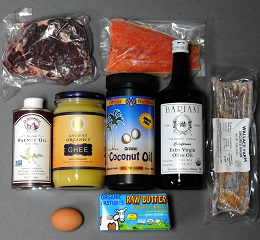Our brilliant and beloved David died on October 30, 2022 at 70 years young.
He leaves a huge hole in the Universe. You can read his obituary here.
David's Recommended Supplements
To find many of David’s recommended supplements, go to https://us.fullscript.com/welcome/elitealternatives
For help finding David’s supplements that are not in FullScript, visit this page.
For information about Quality Assurance for David’s recommend supplements, read here.
If you would like to join David’s private Facebook group, if you were a patient of his or are familiar with his teachings, you can ask to join the group called, “What did David Getoff say?”
David's Picks

In Search of Unknown Facts
In Search of Unknown Facts - Full Audio Recording
Video - The Anatomy of a Great Deception

Corona Virus Covid-19 Information
Be sure to read these 3 excellent but very different articles on the Corona Virus.
America and the world are dangerously over-reacting to a viral infection.

Fats, Cholesterol, and Statin Drugs
Why Cholesterol Nonsense Continues by Dr. Rosch
Dwight Lundel Cholesterol Articles 1 and 2

Cell phone & Wi-Fi Hazards
Electrosmog and Electrohypersensitivity
Open Letter re: ABC Catalyst Wi-Fried Documentary, Australia
In Search of Unknown Facts
(13 entries)
Autism
(13 entries)
Cancer
(17 entries)
Cannabis
(1 entries)
Cell phone & Wi-Fi Hazards
(16 entries)
David's Blog
(4 entries)
Detoxification - Group Programs & Professional Academy
(11 entries)
Exposing corruption, greed and fraud - Documentaries you need to watch
(11 entries)
Fats, Cholesterol, and Statin Drugs
(16 entries)
Foods and Diets
(19 entries)
Funny Videos
(3 entries)
Global Warming, Climate Change & Politics
(16 entries)
Health
(46 entries)
Important Videos
(80 entries)
Interesting Topics
(18 entries)
Interviews with Experts
(6 entries)
Lectures & Audio Recordings
(35 entries)
Medical Misconceptions
(27 entries)
Published Articles
(41 entries)
September 11th
(6 entries)
Space
(3 entries)
Toxic Metals
(3 entries)
Vaccination
(56 entries)
Violence, guns, and mass shootings
(10 entries)
Vitamins & Nutrition
(38 entries)
Water, Air, and Light
(11 entries)





